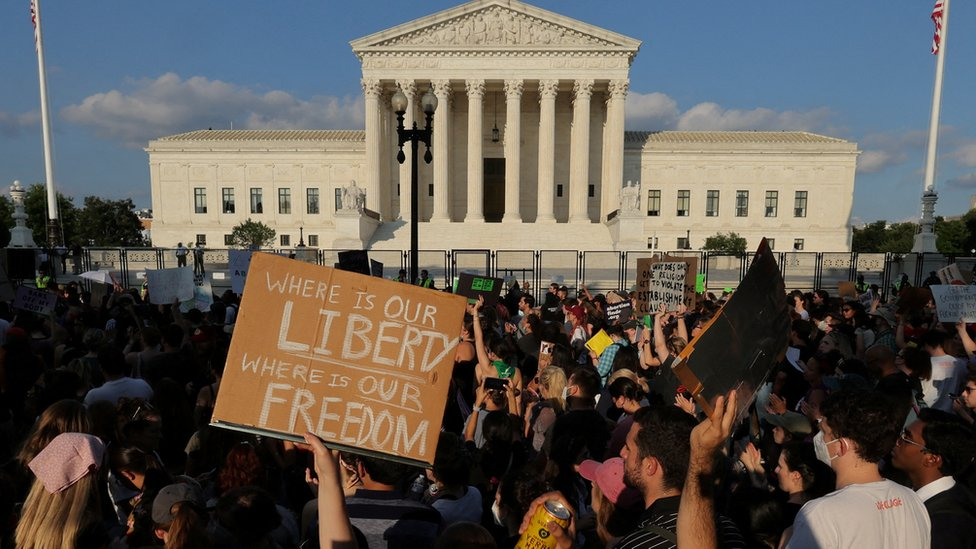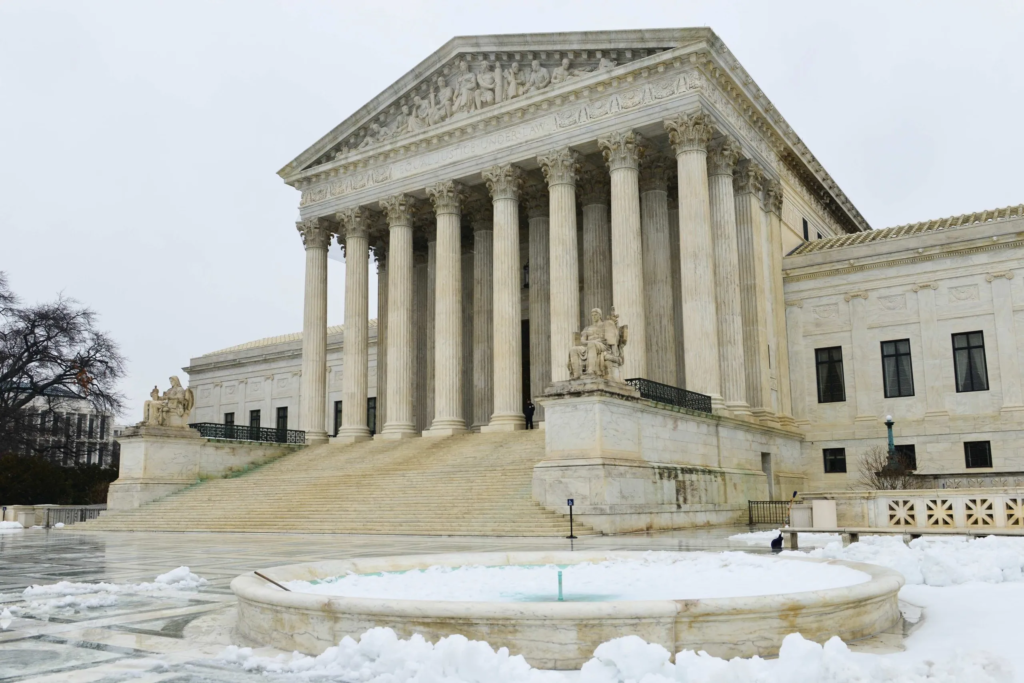The Supreme Court’s influence on American life is one of the most powerful forces in the United States. While Congress creates laws and the president enforces them, the Court has the authority to interpret the Constitution and decide what is or is not legal. Its rulings often shape the rights and freedoms of millions of people. From abortion and gun ownership to voting rights and civil liberties, the Court’s decisions affect daily life, politics, and society.
The Court’s Unique Role
The Constitution gives the Supreme Court the power of judicial review, which allows it to strike down laws or government actions that conflict with constitutional principles. This power makes the Court an equal branch of government, acting as a check on both Congress and the president.
What makes the Court’s influence unique is its ability to interpret broad principles in ways that directly affect people’s lives. Unlike laws that may change depending on political majorities, many Court rulings set precedents that last for decades or even centuries.

Abortion and Reproductive Rights
Roe v. Wade and Its Impact
In 1973, Roe v. Wade recognized abortion as a constitutional right, protecting women’s ability to make personal decisions about reproductive health. This ruling not only influenced medical practices but also fueled ongoing debates that shaped American politics for decades. Abortion quickly became a dividing line between political parties and an issue that influenced how people voted.
The Reversal in Dobbs v. Jackson
In 2022, the Dobbs decision overturned Roe v. Wade and gave states the authority to regulate abortion. This ruling created a patchwork of laws across the country. In some states, abortion remains legal and protected, while in others, it has been banned or severely restricted. The decision reignited national debates and showed how the Supreme Court can dramatically shift the landscape of personal rights.
Gun Rights and the Second Amendment
Expanding Gun Ownership
For years, the Second Amendment was interpreted narrowly, focusing on militias rather than individuals. That changed with District of Columbia v. Heller in 2008, when the Court ruled that individuals have a constitutional right to own firearms for self-defense. This decision reshaped gun laws nationwide and fueled debates about public safety and personal freedom.
Recent Developments
More recently, the Court expanded gun rights further in the 2022 Bruen case, which struck down restrictions on carrying firearms in public. Supporters saw the decision as a victory for constitutional freedoms, while critics feared it would increase gun violence. These rulings highlight how the Court continues to influence the balance between personal rights and community safety.
Voting Rights and Democracy
Protecting the Right to Vote
The Court has also played a central role in shaping voting rights. In the 1960s, rulings like Baker v. Carr established the principle of “one person, one vote,” ensuring fairer representation. For years, the Court supported the Voting Rights Act of 1965, which was designed to prevent racial discrimination in elections.
Weakening Federal Protections
In 2013, the Court limited federal oversight in Shelby County v. Holder by striking down parts of the Voting Rights Act. This allowed states to change voting laws without federal approval, leading to measures such as strict voter ID laws and reduced polling locations. Critics argue these changes make it harder for minorities and disadvantaged communities to vote, while supporters claim they prevent fraud and maintain election integrity.
Civil Liberties Beyond the Big Issues
The Court’s influence extends to many other civil liberties. In 2015, Obergefell v. Hodges legalized same-sex marriage nationwide, reshaping family law and social norms. The Court also frequently rules on free speech and religious freedom cases, determining how constitutional rights apply in modern contexts.
Each decision in these areas affects not only legal standards but also cultural debates, showing how the Court shapes the nation’s values and identity.
Criticism of the Court’s Role
While the Court is meant to be an impartial body, it has faced criticism for being increasingly political. The process of nominating justices has become highly partisan, with intense debates over how each nominee might rule on major issues.
Some argue that the Court holds too much power, given that justices are unelected and serve lifetime terms. Others believe its independence is essential to maintaining balance in a system where political divisions are growing.

Public Trust in the Supreme Court
Public confidence in the Court has declined in recent years. Controversial rulings on abortion, guns, and voting rights have led many to question whether justices base their decisions on legal principles or political beliefs.
This loss of trust is significant because the Court has no enforcement power of its own. Its authority depends on the public and elected officials respecting its decisions. If faith in the Court erodes, its ability to function as the final interpreter of the Constitution could be weakened.
Possible Reforms
Debates about the Court’s role have led to proposals for reform. Ideas include imposing term limits on justices, increasing the number of seats on the Court, or establishing stricter ethical standards. Supporters argue reforms could make the Court more accountable and reduce partisanship. Opponents warn that such changes might undermine judicial independence and damage the separation of powers.
Conclusion
The Supreme Court’s influence on American life is far-reaching and long-lasting. From abortion and gun rights to voting laws and civil liberties, its decisions shape how Americans live and how the nation defines freedom and justice.
While its role often sparks controversy, the Court remains a cornerstone of American democracy. Its rulings continue to guide political debates, shape cultural values, and impact individual lives. Whether praised or criticized, the Supreme Court will remain one of the most powerful institutions in determining the nation’s path forward.
Do Follow USA Glory On Instagram
Read Next – Cyber Warfare and AI Weapons: The New Global Threats






